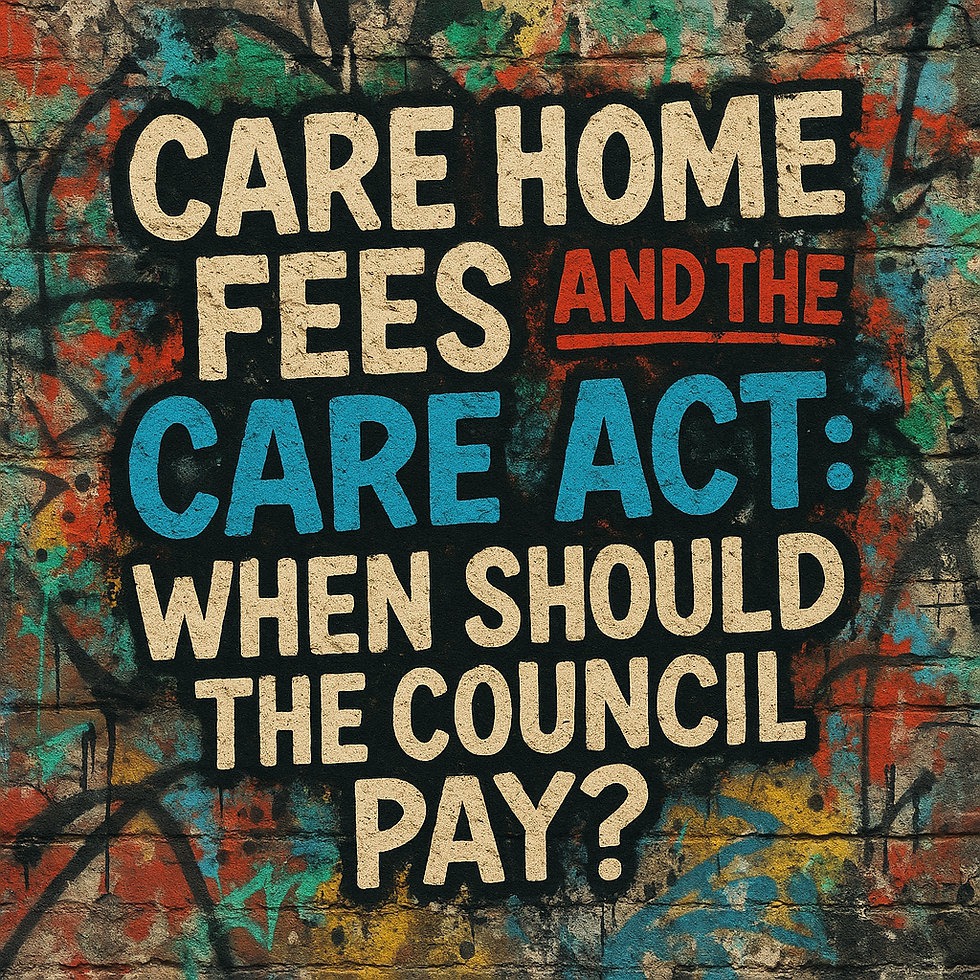Liberty Protection Safeguards - What We Know So Far
- Team Nellie

- May 2, 2020
- 4 min read
Updated: Apr 21, 2023
What are Liberty Protection Safeguards?
In my previous blog, I discussed DoLS and the proposed changes from the current system to a new more efficient and less bureaucratic process to assess if an individual is being deprived of their liberties and what to do to safeguard that individual if this is the case?
This was in the form of the Mental Capacity Amendment Bill where Liberty Protection Safeguards (LPS) was first introduced, although LPS is not mentioned in the Act. This has now been passed into law from May 2019 and is proposed to come into effect from October 2020.
Firstly, it is important to understand what liberty is. Liberty as in the Human Rights Act (1998) (art. 5) is defined as: “Everyone has the right to liberty and security of person” (Human Rights Act, 1998)

“Everyone has the right to liberty and security of person”
(Human Rights Act, 1998)
So LPS, what are these and why is this so important?
Liberty protection safeguards or LPS are a set of criteria/features which provide clarity on what needs to happen or to have happened in the event of someone lacking capacity. The rules are somewhat like DoLS, again referring to the acid test to determine capacity and bearing in mind the Cheshire West ruling. These are what we must go on and pretty much define what is considered to be a deprivation of our liberties.
There does not seem to be any new features here and because liberties are defined in the Human Rights Act (1998) there does not seem to be anything that could change this. The only changes which I am able to see between DoLs and LPS are the way in which this is measured or assessed and who by? I am struggling to find clarity here in how this is going to improve the situation for the hundreds of thousands of people who either are deprived of their liberties or who have to make the decision to deprive someone of their liberties.
What are the significant changes?
From what is proposed by the Law Commission the legal age for applying for LPS will now be 16 years old, from what I can see this is only going to increase the workload of assessors. The amendment bill was, in my understanding supposed to streamline this and ensure that there was some clarity.
Another change is to the timescales, so after an initial yearly review, it could be another three years before you are reviewed. I know that the right to liberty is a qualified article but three years appears to be a long time to leave someone who is being deprived of their liberties particularly if you consider that there are still around 2,300 individuals living in acute treatment units who are being deprived of their liberties, which the government are failing to address. How is increasing the timescales going to help individuals already in a situation whereby they are being supervised 24/7?
The changes from BIA to AMCP, although BIA will still assess the more complex and contentious cases. Who will train to be AMCP’s and how can Local Authorities and companies afford the Bill for training when funding to sectors has already been reduced from Central Government? This has already been considered by Parliament, but no real solution has been provided of how they intend to find money to put assessors through an AMCP course.

Points to consider!
I hope I have not been too overly critical or negative of the changes to DoLS, however, I think that between now and October 2020 there will be some answers to some of the questions which I believe are extremely important to ensure that individuals are not being deprived of their liberties or held without justification. Liberties are not just a domestic issue as again I will quote the Universal Declaration of Human Rights (UDHR) (1948) we are tied to international customary law, so we need to get this right.
The changes to the demographic, so assessing individuals from the age of 16, this needs to be considered in much more detail as we may risk identifying an individual as lacking capacity when in actual fact, they may not have the cognitive maturity to understand the situation. Although I do understand that even at 16 you can be deprived of your liberty so there must always be a good reason to justify why this is happening.
The timescales how long will the assessor have to carry out an assessment as currently under DoLS there are strict timescales which protect the individual and ensure that the authorities are following due process and adhering to the individual’s rights.
On the assessment forms will it be clear in relation to the reasoning behind leaving a review for three years. Or the likelihood of an individual gaining the capacity to make the decisions. If it is not, then you risk reviewing too infrequently for the impairment of the mind or brain. Degenerative conditions may affect an individual’s capacity in the long term so three years might be a reasonable length of time to leave somebody. If someone has had an acquired brain injury, then this may deprive them of their liberties as their condition may improve.
Lastly and I say this last as this is controversial, what is this going to improve? Is this just another way of making it look like something is being done when in reality it is just rebranding of an old concept?
Louise Thornton is a Registered Social Worker and holds MSc Human Rights.
Keep up-to-date with the latest insights and information by subscribing to our mailing list
need support or advice now? call us on 0333 987 5118




Comments